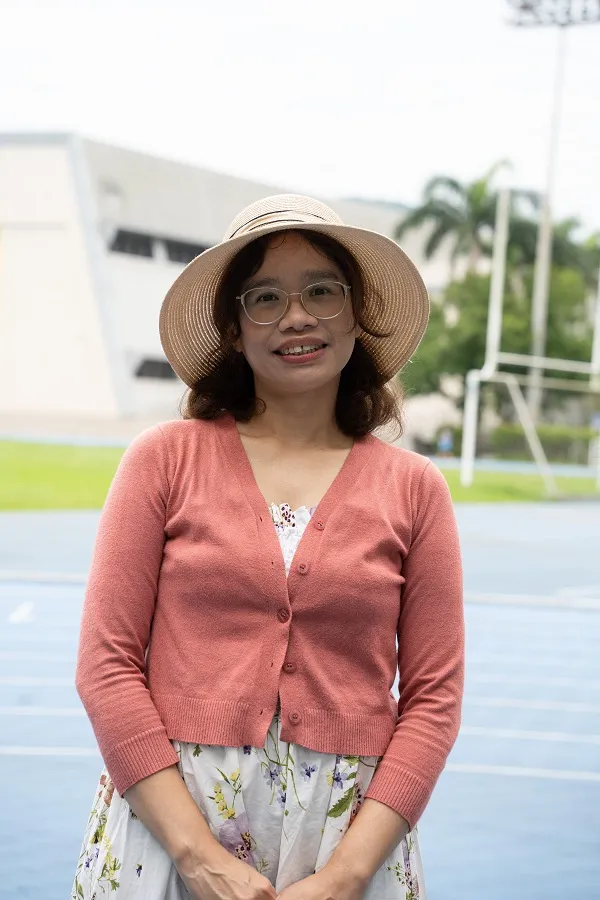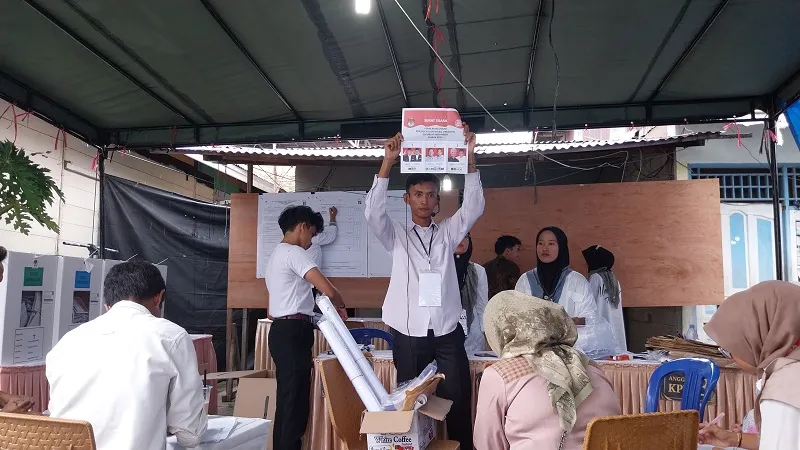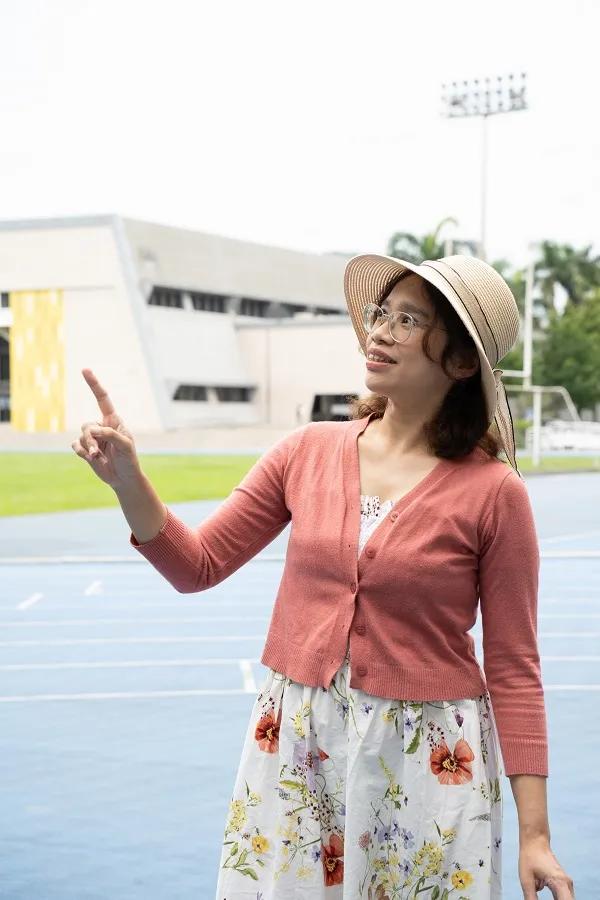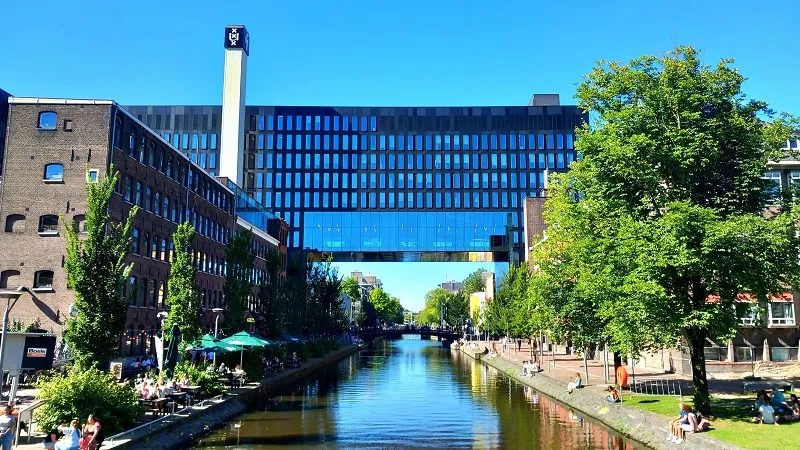Articles by Han Pham
Educational and Professional Background
Renowned scholar Deasy Rumondang Priscilla Simandjuntak, assistant professor, teaches at NCCU's International College of Innovation. Her long academic career and professional journey as an educator is testament to her passion and commitment, not only for the field of Southeast Asia studies, but also for a teaching approach that encourages students’ active participation and critical thinking, as well as innovative pedagogical methods.
Upon winning a competitive PhD grant from the Dutch government in 2004, Professor Deasy studied at and obtained her PhD in Social Sciences from the University of Amsterdam in 2010. She had also acquired her MA in International Relations from the same university in 2003, with a scholarship from the Dutch government. Yet the beginning of her academic journey actually began in Indonesia, where she completed her Bachelor of Arts in International Relations, from the University of Indonesia in Jakarta in 2000. This foundational education was crucial for her future academic pursuits.
Having completed her PhD in Amsterdam in 2010, she embarked on two postdoctoral stints—one at the University of Leiden and another at the University of Freiburg in Germany. Following these positions, she returned to the Netherlands to teach at the University of Leiden before moving to Singapore to work at a prominent regional think-tank, the Institute of Southeast Asia Studies. After five years in Singapore, she relocated to Taiwan, where she currently resides and teaches. She did research at Academia Sinica for one and a half year, then moved to NCCU.
Her academic and professional journey demonstrates an impressive ability to adjust to different cultural and educational settings. "I have lived in six different countries in my life. If you ask me where I am from, I am confused. I identify as confused. For the past 25 years, I’ve not been in the country where I was born. I'm never in Jakarta […]. And I was joking with my friend. When they asked, well, where is home? I said, well, home is where my two suitcases are, " she observed, emphasizing the globalized nature of her identity.

▲Deasy Rumondang Priscilla Simandjuntak, assistant professor, teaches at NCCU's International College of Innovation.
Current Research Interests and Projects
Professor Deasy specializes in Southeast Asian democracy, Indonesian politics, democratization, decentralization, and identity politics. Her current research is centered on religious nationalism in Southeast Asia, which she believes is important due to its potential negative impact on democracy. She emphasizes that religious nationalism poses a significant challenge to democracy as it is about certain majority groups within a country advocating for the dominance of their religion in politics, which could potentially lead to exclusion and conflict.
For example, in Indonesia, while the majority religion is Islam, the country prides itself on religious diversity and democratic values. However, small groups within the majority push for a homogeneous religious identity, which undermines the nation’s democratic fabric. “It is very important to look at this because it is one of the biggest threats to democracy,” she emphasized. By studying these dynamics, Professor Deasy aims to contribute to a broader understanding of how religious nationalism can be addressed to preserve democratic values.

▲Indonesia is the world’s fourth most populous nation and third largest democracy.
Her expertise in Southeast Asian studies is not solely theoretical but is also based on extensive fieldwork carried out across various countries in the region. “So, I'm a Southeast Asia expert, not only because I learned about it [from books], but because I did go and do my research in different countries in Southeast Asia” she stated.

▲"For me, the focus of teaching is actually to make them grow, to contribute to their life," said professor Deasy, highlighting her dedication to student development.
A Passion for Academia
Professor Deasy's inspiration to pursue a career in academia was ignited during her childhood, fueled by a love for reading and critical thinking.
"I love being a professor," she shared with enthusiasm. Her early exposure to Indonesian and English literature fostered her analytical skills and curiosity. "I think my analytical capacity was first ignited when I was a kid because I was reading classics and had many questions about those stories," she recalled.
Her experiences at the University of Indonesia, where she was part of a highly competitive and discussion-based program, further shaped her academic aspirations. The emphasis on debate, analytical thinking, and a democratic classroom environment influenced her teaching philosophy. "The majority of it is discussion… it's always in English, and it sharpened the analytical capacity and students' confidence," she explained. "This is reflected on how I teach now. I like that when my professors were teaching, they were not just speaking for three hours. You know, the bulk of it, the majority of it, was discussion".
Professor Deasy's teaching methods foster a democratic classroom environment where all opinions are valued and critical thinking is encouraged. Her experiences in debating societies and her professors’ supportive, discussion-based approach inspired her to create similar environments for her students. "For me, the focus of teaching is actually to make them grow, to contribute to their life," she said, highlighting her dedication to student development. Her subsequent studies in the Netherlands, where she delved into critical theories and political thought, significantly reinforced her commitment to creating a safe and stimulating learning environment for her students.
The Influence of Cultural Diversity on Studies and Research
Growing up in Indonesia, a country known for its rich ethnic and cultural diversity, has significantly influenced Professor Deasy’s approach to research. “Indonesia has 1,300 ethnicities and around 600 languages,” she noted. This diverse environment cultivated and honed her familiarity with different cultures and languages, a skill that has proven invaluable in her research across Southeast Asia.
Her ability to navigate various cultural contexts allows her to conduct research effectively, even in unfamiliar settings. “I am comfortable being a stranger, which means that I am comfortable doing research in an area in which the people don’t speak my language,” she explained. This adaptability has assisted her in her fieldwork in Myanmar, Thailand, Singapore, Malaysia, and beyond.
Such familiarity on multicultural settings also sparked her interest in political anthropology, a field that examines the intersection of politics and cultural identities. “I am a political scientist and political anthropologist… this is the result of me being very interested in different identities,” she shared. This dual focus allows her to explore how political and cultural dynamics influence each other, providing a richer understanding of the regions she studies.
Professor Deasy's proficiency in multiple languages is a testament to her linguistic talent and cultural adaptability. She speaks five languages, including Indonesian, English, Dutch, German, and French, and has a basic understanding of Mandarin. Her early exposure to English and Indonesian set the foundation for her multilingual abilities. "I learned English when I was four, so it's like one of the two first languages," she noted.
Her family background played a significant role in her linguistic development. " Dutch was, for my grandparents, the secret language. So, when they didn’t want the children to know what they were talking about, they spoke in Dutch to each other. And then, my grandma spoke with me in Dutch when I was a kid. You know how easy it was when you were a kid since your language-acquiring capacity is higher, so I spoke a bit of that, , but then I moved to the Netherlands, so my Dutch ability became more sharpened," she recounted.
Professor Deasy's time in Europe was a significant chapter in her linguistic journey. The multicultural environments she studied and worked in were instrumental in her acquisition of French and German. "That's the thing about studying in Europe… you speak different languages," she observed. This multilingualism, a product of her academic experiences, enriches her research and teaching, enabling her to engage with diverse communities and scholarly works in their native languages.

▲The Roeterseiland campus of the University of Amsterdam
Teaching in Taiwan: A Commitment to Southeast Asian Studies
Professor Deasy's decision to teach in Taiwan was motivated by her desire to contribute to the enhancement of Taiwan academia’s understanding of Southeast Asia within the context of Taiwan's New Southbound Policy. This policy aims to strengthen Taiwan's ties with countries south to Taiwan, and Professor Deasy's expertise in the region is valuable and crucial in this effort.
Teaching in Taiwan has been a rewarding experience for her, offering a diverse and dynamic academic environment. "Taiwan is more internationalized than the Netherlands," she observed. " My students at the University of Leiden were more homogeneous because they were all European...but here in Taiwan, my students are from different continents and have different ideologies, I even have students from socialist countries.” Her current students in NCCU come from various backgrounds, bringing many perspectives to the classroom. This diversity enriches the learning experience, fostering a deeper understanding of global issues.
Professor Deasy's teaching philosophy in Taiwan revolves around creating a safe and respectful classroom culture. She adapts her methods to accommodate students' cultural differences, emphasizing the importance of open dialogue and mutual respect. "The class has to have its own culture… my class is a safe space for everyone to express their opinion," she stated. This approach ensures all students feel valued and encouraged to contribute their unique viewpoints.
Courses and Teaching Goals
In the next semester, Professor Deasy teaches the courses of “Hybrid regimes: Democratic Challenges in Southeast Asia”, and “Ethnicity, Religion, Nationalism: Violence and, and the Politics of Belonging”. She explains these two classes: "We are all hybrid regimes [meaning: not fully democratic] in Southeast Asia… What makes the countries still work? … And what are the challenges? The second course is on ethnicity, religion, nationalism, politics of belonging, and violence in the world… It is about how ethnicity and religion influence nationalism, which is an exclusive loyalty to the nation. Violence is actually never ethnic or religious; it's always political. Violence is always mobilized, right? So that's what I'm teaching.” In the spring semester she will teach “Politics in Southeast Asia: Change and Continuity” and “Civil Society and Constitutional Democracy: Lessons from the Global South”.
Her goal is to equip students with both content knowledge and analytical skills. "Nobody knows nothing (about a subject), they always already know a little. I aim to add to that… you will know more from my class. So from knowing only a little, they will know more bit by bit, they may do their own research one day and then know even more than me. That's what I want to see." she emphasized. She encourages students to sharpen their critical thinking abilities and approach complex issues confidently.
Especially about teaching in English, she believes that teaching in English is not just about linguistic ability but also about conveying information in an engaging and comprehensible manner. “Teaching in English is not only about saying things in English… it’s also about making sure that that particular paragraph that you are saying is actually understandable,” she explained. By incorporating interactive elements like debates and games, she makes theoretical content accessible and interesting to her students.
Moreover, she highlights the importance of cultural sensitivity and creating a safe space for students to express their ideas. “[Teaching in a foreign language] is not only about saying things in another language… it’s also adopting the cultural code and mentality behind that language,” she noted. Many democratic countries use English, thus English has a “democratic” and “open-minded” cultural codes behind it. That is why she always encourages students to speak freely, despite language barriers, as she believes a bilingual classroom respects and values diverse perspectives, encouraging students to participate actively and confidently.
Advice for Students
Professor Deasy offers words of encouragement to students considering her classes. She believes in every student's potential to grow and succeed. "You should not be silent in my class. It's actually wrong to be silent in my class because then you are going to be engulfed by people who are talking a lot. For students considering my class, my advice is to be confident, or join my class even if you're not confident, because it's a safe environment." Her classes are designed to challenge students intellectually while providing the support they need to develop their ideas. Deasy stated: "You don't need a background in Southeast Asian studies or religious studies to enjoy and benefit from the classes. It's an international space where we learn from each other. Additionally, be open-minded and ready to respect others' opinions, even if they differ from your own."
Professor Deasy's greatest joy comes from seeing her students succeed and surpass her achievements. Her goal is for students to gain substantial knowledge from her class regarding content and mindset. She wants them to realize that their ideas can be sharpened, they should embrace them confidently, never feeling inadequate or not smart enough. She aims to instill a deep sense of confidence in her students, empowering them to be assured of their knowledge and inspired to reach their full potential.
"One day, if they're confident enough, they're going to do research [on their own particular interests], they're gonna be somebody… that will be my greatest dream," she shared. Her dedication to her students' growth and success is a testament to her passion for teaching and her commitment to making a positive impact through education.